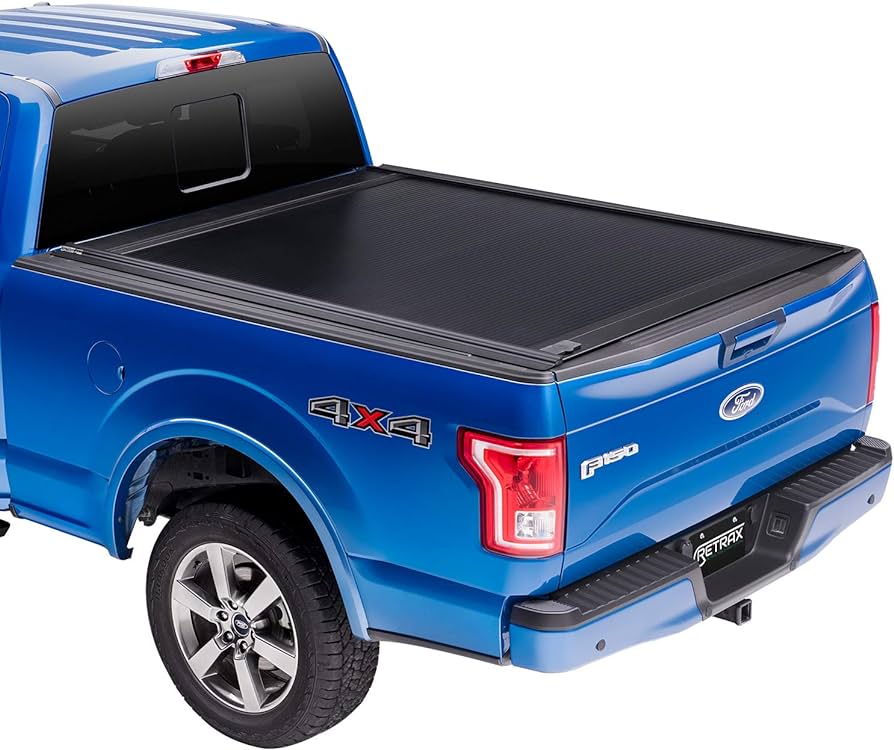The weight of a Ford F150 typically varies depending on the specific model and configuration, but it generally ranges from 4,051 to 5,697 pounds. The Ford F150 is a popular full-size pickup truck manufactured by Ford Motor Company.
Ideal for both personal and commercial use, the F150 offers a blend of power, versatility, and durability. With its robust build and reliable performance, this truck has become a top choice for individuals and businesses in need of a capable workhorse.
Whether you’re hauling equipment, towing a trailer or simply driving around town, the Ford F150 is designed to handle your needs with ease. Let’s explore the weight of the Ford F150 in more detail.
The Significance Of Knowing How Much A Ford F150 Weighs
The weight of a Ford F150 is a crucial factor to consider for various reasons. First and foremost, the impact of weight on performance cannot be underestimated. A heavier vehicle requires more power to accelerate and can result in slower acceleration and less agility on the road. Additionally, fuel economy is directly affected by weight. A heavier vehicle requires more fuel to move, leading to higher fuel consumption. Understanding the weight of a Ford F150 is also vital for its towing capacity. The weight of the truck itself combined with the weight of the load being towed must not exceed the maximum capacity specified by the manufacturer. This ensures safe and efficient towing without putting excessive strain on the vehicle. Therefore, being aware of how much a Ford F150 weighs is essential for making informed decisions about its performance, fuel efficiency, and towing capabilities.
Exploring The Different Models And Their Weights
Exploring the different models and their weights, the Ford F150 offers a range of options for various needs. The lightweight variants prioritize efficiency and nimble handling. With aluminum body construction, these models shed pounds without sacrificing strength. The use of EcoBoost engines further balances power and weight savings.
However, for those seeking heavy-duty capabilities, there are options available that come at a cost. These heavy-duty variants offer enhanced strength and capability, but they also come with increased weight. Steel body construction is robust and durable but adds bulk.
Moreover, the F150 offers models with V8 engines which provide raw power but also result in increased weight. Each model has its own unique weight based on the specifications and features it offers.
Overall, the weight of a Ford F150 varies depending on the specific model, body construction, engine type, and additional features. Choosing the right combination of features and weight is essential for meeting your specific requirements and preferences.
Deconstructing The Weight Factors Of A Ford F150
The weight of a Ford F150 can vary depending on several factors. One of the key factors that contribute to the weight of the vehicle is the engine type. There are three main engine variations available for the Ford F150: V6, V8, and EcoBoost engines. Comparing the weights of these engines, the V6 engine tends to be lighter compared to the V8 and EcoBoost engines. However, there are trade-offs when it comes to power, efficiency, and weight. Another factor that affects the weight of the Ford F150 is the body composition and material choices. The choice between steel and aluminum plays a significant role in finding the right balance between strength and weight. The Ford F150 introduced an aluminum body in recent years, which has led to weight-saving innovations. The suspension and chassis of the Ford F150 also contribute to its overall weight. Different suspension components can have varying effects on the weight of the vehicle. Moreover, the type of suspension also affects the trade-offs between weight and off-road capability. In conclusion, the weight of a Ford F150 can be influenced by factors such as engine variations, body composition, material choices, suspension, and chassis considerations. By carefully balancing these factors, Ford has been able to optimize the weight of the F150 while still maintaining its performance and capabilities.
Understanding The Weight Range Across Generations
Understanding the weight range across generations of the Ford F150 allows us to grasp the historical evolution of this iconic vehicle. Early models were known for their simplicity and lightweight construction, prioritizing practicality and efficiency. As safety and structural regulations evolved, the weight of the F150 increased to meet these standards while maintaining the necessary structural integrity. In modern generations, weight optimization became paramount, balancing strength and efficiency through innovative materials and design. Comparing weight variations across different model years helps us understand the impact of advancements in technology and manufacturing processes on the overall weight of the F150. These fluctuations can be attributed to various factors such as changes in materials, advancements in safety features, and improvements in fuel efficiency. By assessing the reasons behind these weight fluctuations, we gain insights into the continuous improvement and adaptation of the Ford F150 throughout its history.
The Influence Of Add-ons On A Ford F150’s Weight
The weight of a Ford F150 can vary depending on various factors such as optional equipment and aftermarket modifications. Optional equipment like towing packages or performance upgrades can add additional weight to the vehicle. These can be either factory-installed options or aftermarket modifications. It is important to analyze the weight impact of these features before making any modifications to the vehicle.
Cargo and payload considerations also play a role in the weight of a Ford F150. It is crucial to understand the relationship between cargo weight and overall payload capacity. Overloading the vehicle can have a negative effect on its handling and performance.
Considering the influence of add-ons and cargo weight, it is essential to be mindful of the weight your Ford F150 is carrying. By understanding the impact of these factors, you can make informed decisions about the weight of your vehicle.
Making An Informed Decision: Factors To Consider
When considering the weight of a Ford F150, it is important to make an informed decision by taking several factors into account. One key factor is identifying your specific needs, as finding the right balance between weight and capability is crucial. Fuel efficiency and weight trade-offs should also be considered when choosing the right engine and configuration for your F150. By understanding towing capacities and their relationship to weight, you can ensure that your F150 will meet your towing requirements. It is important to note that the weight of a Ford F150 can vary depending on the specific model, engine, and configuration chosen. By carefully considering these factors, you can select a Ford F150 that meets your needs and provides optimal performance.

Credit: www.autonationfordscottsdale.com
Conclusion
To summarize, the weight of a Ford F150 depends on various factors, such as the model, engine type, and configuration. Understanding the weight of your vehicle is crucial for safety and performance reasons. Whether you are a truck enthusiast or a potential buyer, knowing the weight of a Ford F150 can help you make informed decisions.
Be sure to consult the official Ford website or your local dealer to get accurate and up-to-date information on the weight specifications of the Ford F150 models.

